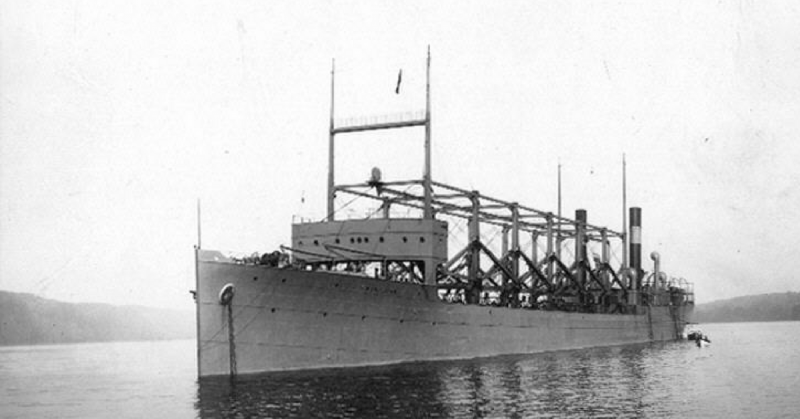The story of the Titanic’s sinking shocked the world in 1912, but it was nothing compared to the global reaction to the news that the USS Cyclops had simply disappeared. The Titanic, at least, left survivors, cargo and sections of its wreck to be examined. The USS Cyclops left nothing.
Absolutely nothing.
In 1918, the U.S. Navy ship just vanished into thin air. It was not her maiden voyage – she’d been sailing since 1910 but the boat left no clues behind to help experts figure out what happened. No physical evidence, no survivors, and not even a mayday call from her location.
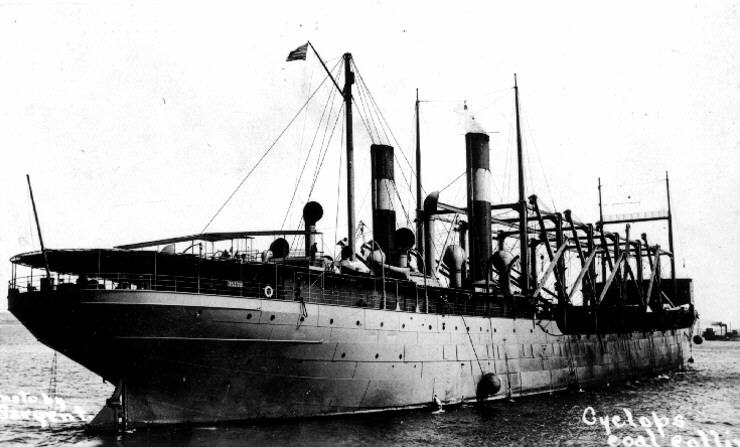
In the ensuing years, plenty of theories have filled the void that formal, accurate and scientific information would usually provide. Everything from aliens to a sea monster has been blamed for her disappearance, but the truth is likely far less entertaining.
The Cyclops was on a voyage between the Caribbean Sea and the Atlantic Ocean in an area known as the Bermuda Triangle. Her cargo was often coal, but on this occasion, she was carrying manganese ore, a mineral used in steel making industries. The boat left Brazil with its cargo fully loaded, heading to Barbados to “rest up,” so to speak, before the long trip back to her home port in Maryland.
Then, nothing.
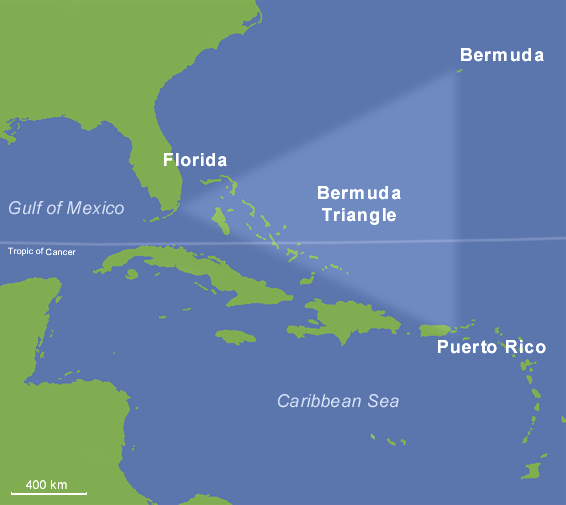
No mayday call, no SOS to a passing ship. One day she was there, the next she wasn’t. The Navy soon admitted bewilderment at what could have happened to the vessel. “The disappearance of this ship has been one of the most baffling mysteries in the annals of the Navy, and all attempts to locate her have proved unsuccessful,” reads its official position on the ship’s fate.
But theories about the Cyclops’s fate abound, some more credible than aliens and sea monsters, though not much. Some people have wondered if the crew staged a mutiny, then killed the captain and sank the ship. (Though why they would kill themselves remains unclear.) Others believe the load was too much for her; that she simply sank in the deepest part of the ocean and remains undetectable even with today’s technology.
Still, others believe she fell victim to a German submarine (it was 1918, after all, and the First World War was on,) but surely there would have been something left?
Still, the latter explanations appear most credible.
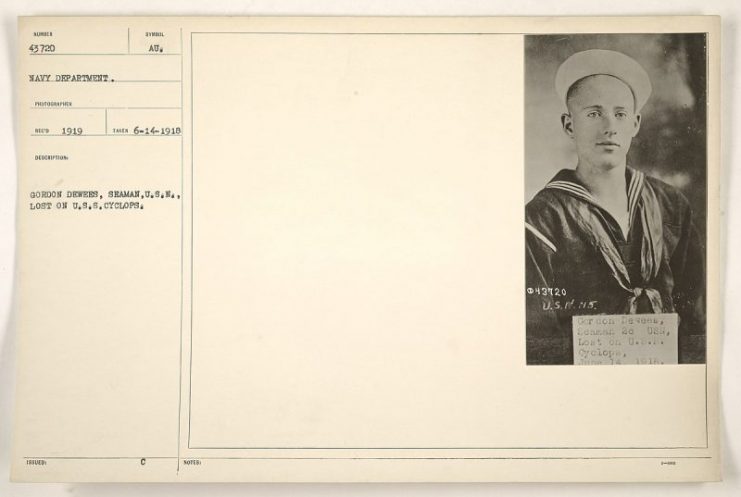
One individual, in particular, is captivated by the fate of the Cyclops. Marvin Barrash who is a distant relative of one of the firemen aboard the vessel, and he has been studying the story for more than ten years.
He wonders if a mechanical breakdown, coupled with an inexperienced crew dealing with an unfamiliar load, or an enormous wave caused the USS Cyclops to simply tip into the ocean’s deepest, unknown recesses of the Atlantic. Whatever happened to her, Barrash does not want the mystery forgotten.
He told the Baltimore Sun, “I just want her to be found. I want the 309 (crew members) to be at rest, as well as the families.” He stressed that he felt “the whole story has been swept under the rug,” presumably a criticism of the Navy’s attempts at a recovery. “It wasn’t like it was lost in a glorious battle. It just kind of fell off the earth.”
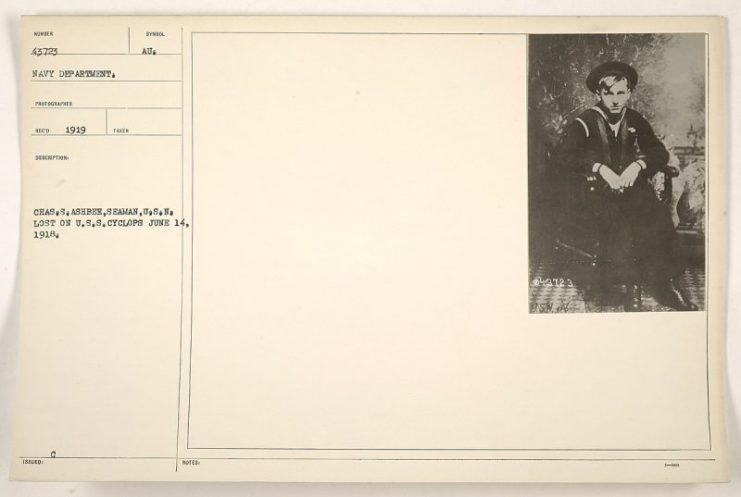
Read another story from us: Unsolved Mysteries of WWI
Barrash’s point is easily understood; we all long to know the fate of our families, where they lived and how they died. The story of the USS Cyclops is more than what happened to her, to her structure of tons and tons of metal, the largest vessel in the Navy at that time. It is the story of the journey hundreds of men made to their deaths.
When last heard from, the USS Cyclops sent a message: “Weather Fair. All Well.”
If only that had turned out to be true.
